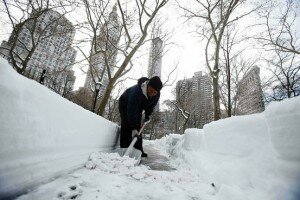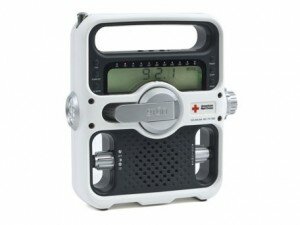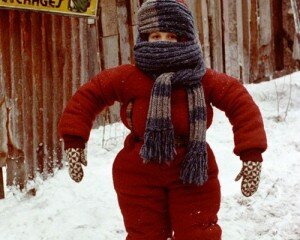 Winter is coming.
Winter is coming.
And with it, a new set of emergencies to prepare for. While hurricanes and tornadoes are rare during this time of year, emergencies related to snow and ice become more common.
 Heavy snow fall and ice storms can paralyze cities, making travel difficult and sometimes making even going outside dangerous.
Heavy snow fall and ice storms can paralyze cities, making travel difficult and sometimes making even going outside dangerous.
The midwest is experiencing firsthand what snow and ice can do to disrupt everyday life.
Just like any emergency, being prepared is critically important for ‘weathering’ the storm.
 Do you know what to do if your city essentially shuts down for three days (or more) because of winter weather? What if you lose power because of ice bringing down power lines?
Do you know what to do if your city essentially shuts down for three days (or more) because of winter weather? What if you lose power because of ice bringing down power lines?
Have you thought about how to prepare for serious winter storms? Here are some tips to help you brave winter disasters:
- When you know that serious winter weather is on the way, try to keep a full tank of gas in your vehicle. It helps to prevent your fuel lines from freezing.
- Minimize travel. If travel is absolutely necessary, make sure you have an emergency kit in your vehicle and that someone knows where you’re going and when you should arrive.
- Avoid driving when conditions are dangerous. Sleet, freezing rain, snow and ice all make driving more difficult. Even after the storm has passed, you may not even see patches of ice on the road.
-
 Make sure you have a disaster kit with at least a three day supply of food and water (one gallon per person per day), battery or hand-crank powered radio and flashlight, medicine, baby supplies (if needed), extra pieces of warm clothing and blankets, and extra supplies for your pets.
Make sure you have a disaster kit with at least a three day supply of food and water (one gallon per person per day), battery or hand-crank powered radio and flashlight, medicine, baby supplies (if needed), extra pieces of warm clothing and blankets, and extra supplies for your pets.
- Don’t use a generator, grill, or any other device that burns fuel inside. Only use them outside and away from doors, windows, and vents to keep carbon monoxide from entering your home.
-
 Protect yourself from frostbite and hypothermia by dressing in multiple layers of loose fitting clothing (tight clothing can restrict blood flow)
Protect yourself from frostbite and hypothermia by dressing in multiple layers of loose fitting clothing (tight clothing can restrict blood flow)
We have some great resources on mobilizing spontaneous volunteers in a disaster. The American Red Cross has different emergency specific preparedness information available here, and ready.gov has great resources for preparing for winter weather emergencies and tips for what to do during the worst of the weather and after the storms have passed.
Don’t forget about your neighbors, either. Check up on them to make sure they’ve got everything they need to ride out the storm and that they’re safe and warm.
Are you ready for winter weather? Are you ready to watch ? Are you sitting under a plam tree wonder just what this “snow” thing we’re talking about is? Let us know in the comments!


